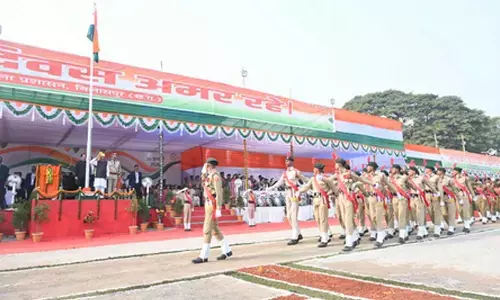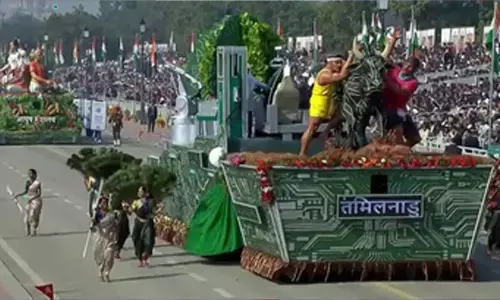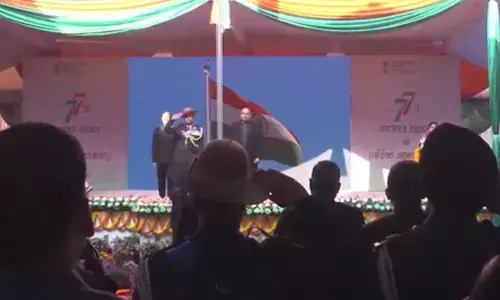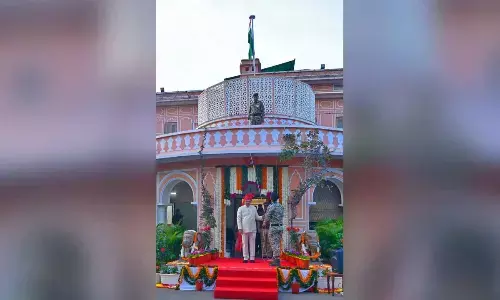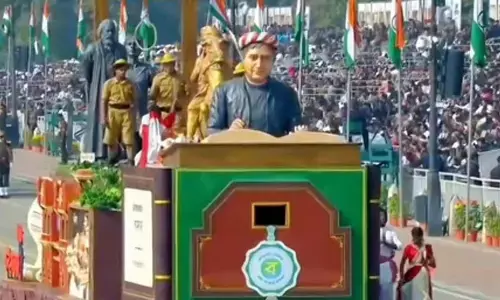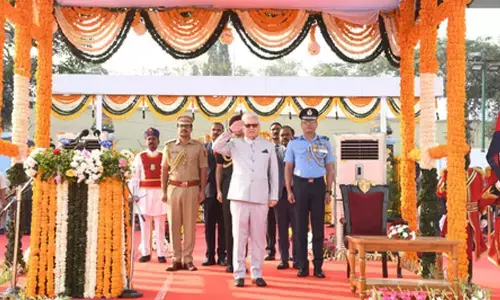Protect identity of whistle-blower

Protect identity of whistle-blower. The Whistle Blowers Protection Act, 2011, notified in 2014, provides a mechanism to investigate misuse of power by public servants. It encourages anybody to question the wrongdoing of any form of fraud, corruption or mismanagement.
.jpg) The Whistle Blowers Protection Act, 2011, notified in 2014, provides a mechanism to investigate misuse of power by public servants. It encourages anybody to question the wrongdoing of any form of fraud, corruption or mismanagement.
The Whistle Blowers Protection Act, 2011, notified in 2014, provides a mechanism to investigate misuse of power by public servants. It encourages anybody to question the wrongdoing of any form of fraud, corruption or mismanagement.
It is an ACT to establish a mechanism to receive complaints relating to disclosure on any allegation of corruption or wilful misuse of power or wilful misuse of discretion against any public servant and to inquire or cause an inquiry into such disclosure and to provide adequate safeguards against victimisation of the person making such complaint and for matters connected therewith and incidental thereto.
It was notified on May 9, 2014, and covers the whole of India, except the State of Jammu and Kashmir. The Act seeks to protect whistle blowers, i.e., persons making a public interest disclosure related to an act of corruption, misuse of power, or criminal offense by a public servant.
This Act is enacted following demands by civil societies after several incidents of threat or harassment to whistle blowers such as the instance of Satyendra Dubey, who was killed in 2003, for blowing whistle in a corruption case in the National Highway Authority of India’s Golden Quadrilateral Project.
Irony is that though the complainant requested not to reveal his identity, the letter including that request was sent to the officer against whom Dubey made allegations. Later, he was brutally killed. Indian Oil Corporation Officer Shanumughan Manjunath was murdered for exposing corruption that led to sealing petrol pump for selling adulterated fuel.
A Karnataka official SP Mahantesh revealed controversial land allotments by societies. He was murdered in May 2012. Mahantesh was the Deputy Director, audit wing, Cooperative department, who reported irregularities in different societies involving officials and politicians. Shortly thereafter, he was sent to a psychiatric hospital.
In August 2013, a Supreme Court bench of Justices K S Radhakrishnan and Arjan Kumar Sikri ruled that the identity of whistleblower can never be revealed to the accused facing prosecution under Prevention of Corruption Act, 1988. In the recent times, media reported about harassment meted out to IFS officer Sanjiv Chaturvedi who won the prestigious Raman Magsaysay award in July 2015.
He caused an FIR to be registered against contractors involved in the construction of Hansi Butana canal. He questioned the contractors for illegal tree felling and poaching hog deer in the Saraswati Wildlife Sanctuary. Sanjiv was reprimanded and transferred to Fatehabad. In August 2007, he was suspended, though the Haryana Forest Department started prosecution against the contractors, based on earlier reports filed by him.
He complained to the President of India and the Ministry of Environment & Forests in 2010 about irregular transfers and fabricated charge-sheets being filed against him. This led to an inquiry committee being constituted by the Central government to look into the allegations, which recommended a CBI inquiry, holding that prima-facie there were very strong evidences against the CM office.
The case was later sent by the Ministry of Environment and Forests to the Central Vigilance Commission, which referred it to CBI, which found it to be worthy of an “independent probe.” The Ministry advised the Haryana government to register FIR and transfer the case to CBI. But the State government refused, but preferred an allegation against Sanjiv of dereliction of duty and did not relieve him, though he was proposed to be taken to the Centre on deputation.
The Ministry had to directly relieve him to enable him to join All India Institute of Medical Sciences as a Chief Vigilance Officer. Still the Haryana government served him charge-sheet, alleging misuse of funds and bogus plantation in Jhajjar. This scam was reported by Sanjiv Chaturvedi that led to suspension of nine officers. Chaturvedi filed a petition in Supreme Court, alleging that “during all these years, the petitioner submitted many representations before the State Government.
but not even a single representation was decided by the State Government, and that he is asking for a CBI inquiry because the actions of the Haryana government were arbitrary, illegal, unconstitutional and malafide that led to a series of violations of service and environmental laws, and also the harassment of the petitioner for a continuous period of around seven years.”
After this, several FIRs were filed and criminal cases registered against him. He also faced four inquiries by the Vigilance Bureau. He was transferred 12 times in Haryana. His in-laws filed a dowry case against him, and his marriage ended in divorce. It is reported that his ex-wife was persuaded to believe that he sought the transfers to avoid her.
In 2009, a case was registered against him for misuse of funds and bogus plantation in Jhajjar district – this was the same case in which he had exposed corruption, leading to suspension of nine officers. Sanjiv Chaturvedi was conferred the Raman Magasaysay award for Emergent Leadership.
The citation says "He is being recognized for his exemplary integrity, courage and tenacity in uncompromisingly exposing and painstakingly investigating corruption in public office, and his resolute crafting of program and system improvements to ensure that government honorably serves the people of India," Ramon Magsaysay Award Foundation release said.
In Manjit Singh Khera v State of Maharasthra (http://indiankanoon.org/doc/85983755/) the Supreme Court in August 2013 ruled that the identity of persons who tip off anti-corruption agencies about corrupt deals of bureaucrats can never be revealed to the accused. The Anti-Corruption Bureau of Maharashtra had investigated a case of disproportionate assets against a public servant on the basis of a complaint filed by "unknown person" and charge-sheeted the accused.
The accused wanted a copy of the original complaint on the ground that it was essential for a fair trial. The Supreme Court bench of Justices K S Radhakrishnan and A K Sikri rejected it saying it failed to see how the accused was prejudiced by non-disclosure. The bench said what was to be borne in mind is that it was a complaint given by some person to the ACB which triggered the investigation. "Thus, this complaint simply provided information to the ACB and is not the foundation of the case or even the FIR," it said.
The ACB had accused Manjeet Singh Khera of having huge movable and immovable property in Mumbai, Aurangabad and Nagpur. Khera wanted a copy of the original complaint to be produced in the court as well as the name of the person who had sent that complaint. It was laid down in this case that non-disclosure of complaint’s identity will not affect fair trial. The Supreme Court was right in denying this information, revelation of which earlier proved fatal for Satyendra Kumar Dubey.
The Whistle Blowers Protection Act clearly states that, “While seeking comments or explanations or report referred to in sub-section (3), the Competent Authority shall not reveal the identity of the complainant or the public servant and direct the Head of the Department of the organisation concerned or office concerned not to reveal the identity of the complainant or public servant: Provided that if the Competent Authority is of the opinion that it has, for the purpose of seeking comments or explanation or report from them under sub-section (3) on the public disclosure, become necessary to reveal the identity of the complainant or public servant to the Head of the Department of the organisation or authority, board or corporation concerned or office concerned, the Competent Authority may, with the prior written consent of the complainant or public servant, reveal the identity of the complainant or public servant to such Head of the Department of the organisation or authority, board or corporation concerned or office concerned for the said purpose.”








